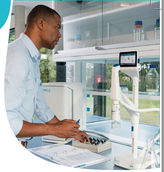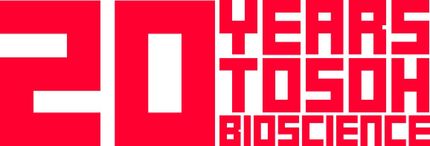Tecan makes major investments in proteomics to leverage existing strengths in high-growth, post-genomic market
Tecan, a leading global provider of laboratory automation systems for the life sciences industry, today announced that it established a new company “Tecan proteomics GmbH” effective January 1 and will devote more than 20% of its total R&D budget this year to the burgeoning field of proteomics, which already has an estimated market value of USD 1 billion and is growing at 40% annually. Scientists are struggling with technological bottlenecks in this field, ranging from the sensitivity of analytical tools and reproducibility of results from one lab to the next, to the lack of high-throughput techniques. Tecan aims to leverage its worldwide market presence, distribution network and proven R&D capabilities in proteomics, complemented by high-value-added knowledge and services.
Leading the scientific team at Tecan Proteomics is Dr. Christoph Eckerskorn, who pioneered key analytical approaches used today in proteomics while at the Max Planck Institute in Germany. Top scientists in the field already have joined him, or will be joining him shortly, giving Tecan a critical mass of expertise in proteomics. Tecan Proteomics is based in Munich, one of the key centers of Europe’s biotech industry, and will be equipped to perform the most advanced processes in proteomics. In addition to scientific talent, Tecan Proteomics has also acquired a majority share in Dr. Weber GmbH, a profit-making company (with sales in 2000 of just under 1 million DEM) that develops and commercializes proprietary free-flow electrophoresis, a key enabling technology in fractionation. This significantly reduces the complexity of a proteome, addressing a major hurdle in proteomics research today.
“Proteomics could be the single biggest opportunity for our company in the coming years,” said Tecan’s CEO Emile Sutcliffe. “Tecan Proteomics will apply our core competencies to the known bottlenecks in proteomics. The technology we have on the shelf will allow us to expand our presence in the proteomics market quickly. Then the development of enabling technologies will boost this presence," he said. "The concentration of proteomics expertise in Munich is giving us access to a pool of knowledge and services in a field that is becoming critical to our current pharmaceutical and biotech customers," Mr. Sutcliffe added. "Tecan will market a suite of proteomics technologies directly to end-users. Tecan Proteomics’ laboratory will have direct access to key enabling technology, with the possibility to enter into research cooperation with our current pharma and biotech customers. The total available market for Tecan in proteomics is estimated at USD 450 million in 2000, expected to double within the next few years.”
Proteomics is the branch of life sciences that focuses on how the information contained in genes is translated into proteins and the ensuing pathways of protein interactions that determine healthy cell functions or disease. While the Human Genome Project has almost finished deciphering the entire nucleotide sequence of human DNA, it remains a fragmentary “map” that does not indicate the role of potentially millions of human proteins. These proteins are the most promising targets for a new generation of drugs. Biotech and pharmaceutical companies are rushing into this field, hoping to patent proteins that play a role in disease treatment.
Most read news
Topics
Organizations
Other news from the department science
These products might interest you

Good Weighing Practice by Mettler-Toledo
Your Concrete Weighing Quality Assurance Plan
GWP Verification service

Milli-Q® Services / MyMilli-Q™ by Merck Life Science
Services & Support for Water Purification Systems
Quality Care, Delivered. In Person & Online

Get the chemical industry in your inbox
By submitting this form you agree that LUMITOS AG will send you the newsletter(s) selected above by email. Your data will not be passed on to third parties. Your data will be stored and processed in accordance with our data protection regulations. LUMITOS may contact you by email for the purpose of advertising or market and opinion surveys. You can revoke your consent at any time without giving reasons to LUMITOS AG, Ernst-Augustin-Str. 2, 12489 Berlin, Germany or by e-mail at revoke@lumitos.com with effect for the future. In addition, each email contains a link to unsubscribe from the corresponding newsletter.




























































